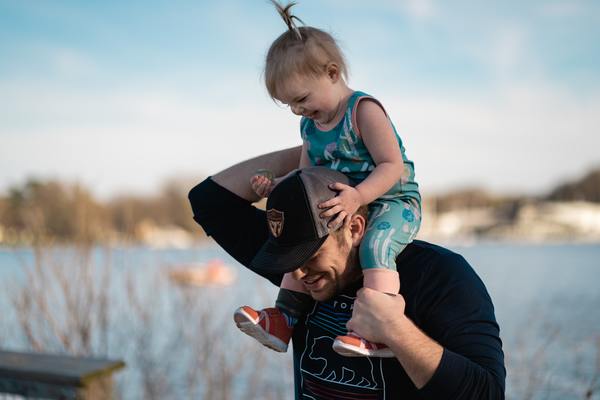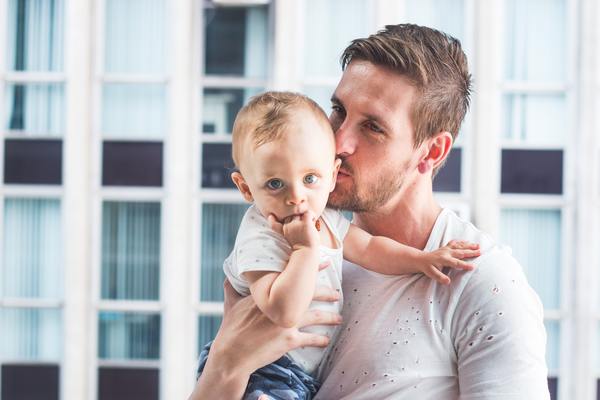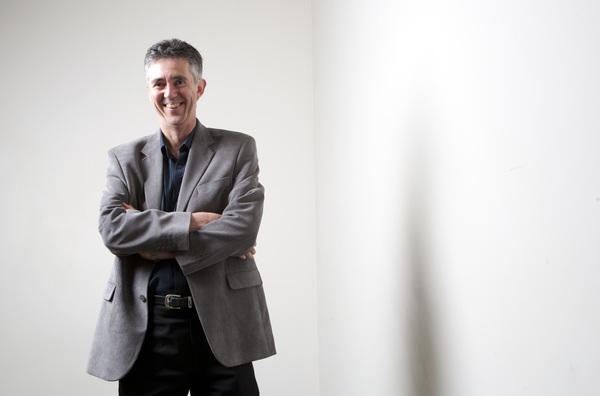In the last few days of my father’s life, I stayed in the hospital to be near him and we had many great talks.
One day he told me something that happened when I was only a couple of days old.
He had put me in the pram, and with the aim of giving my mum some time for a nap, taken me down the high street of the small Yorkshire town where we lived.
As he got among the crowds, he noticed people looking at him and frowning. Then some children ran behind him, jeering and calling out.
At this point in telling the story, dad faltered. He was on a lot of morphine, and I wondered if he was falling asleep. But then I realised he was starting to cry.
I said “what were they calling out?” And he said, “your dad’s your mum”. They were making fun of a man pushing a baby in a pram – in the 1950s that was unknown. He was a shy man, and abandoned his walk and went down a side road for home.
I think, looking back, that he was saying “I tried to be a hands-on dad“. He was proud of my work and books which had encouraged SO MANY dads to play a more active part in their children’s lives. His story suddenly brought home to me that many men of earlier generations would have liked to be closer to their children, but it wasn’t really seen as a man’s role.
We know a lot now about how beneficial dads are for kids. For sons, it seems to give them an idea of what being a good man looks like. Especially from ages 6-14, sons worship their dads and want to be like them, and follow them about, desperate for their approval. It helps if, from birth onward, dad has a caring role, equally able to cuddle, comfort, play and read to them. But it’s never too late to start.
Richard Fletcher at Newcastle University has researched rough and tumble play with dads and kids. He is convinced it’s part of the way kids learn to be safe and moderate their emotions, learning to be excited but safe at the same time.
Girls often love this kind of play too. My friend Professor Bruce Robinson, at UWA, believes girls derive a lot of their self esteem from dads, because he is their first opposite sex role model. It’s so important that dad conveys she is special and important, interesting and worthwhile. It can be as simple as going to her sports (and being her biggest fan), walking the dog, or sitting with her every night to catch up on the best and worst things that happened in her day.
New studies have found when a new baby arrives, the father’s hormones change. They become more placid, less competitive and nicer people! They switch into caring mode, and feel happier being close to their children.
But it takes a bit of practice for mums to share the parenting and accept that dads might do it differently. Dads are likely to be more adventurous, physical and messy, but that’s good for kids and helps them be more confident.
Not everyone is lucky enough to have a dad, or have one nearby. But every time I post an article about the good things dads do on my Facebook community pages, hundreds of mothers tag their husbands. I hope it’s to say “this is what you do!”
IF THERE IS NO DAD
Mothers raising sons alone need to know one thing – women can raise boys to be fine men, and have done so for thousands of years. When I talk to mums whose sons are grown and thriving, they often say they made sure he knew some good men, and that they encouraged granddads or uncles, or chose activities where they would have safe, kind men helping them. That matters most in the mid-teen years when boys are deciding what kind of man they want to be.
In my talks, I always tell the guys that if they are planning a trip or experience with their son to invite along his friend who might not have a dad. We guys have to fill the gaps in the fathering net so boys don’t fall through just because their father is not around. Parenthood is a community job, and if we realise boys and girls both need to know friendly, affirming and interested father figures, then we will have less problems when kids grow up. They will know what a good man looks like, either to be, or to choose as a partner.
Steve Biddulph’s two books Raising Boys in the 21st Century and Raising Girls in the 21st Century are available in audiobooks for dads who don’t read a lot. His final round of talks will be in Melbourne and Sydney between August and October. Visit www.stevebiddulph.com for details.










